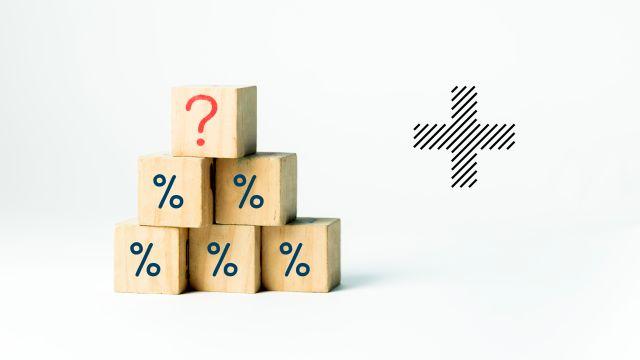What are liquid assets?
What are liquid assets?
What are liquid assets?

Whether or not you have liquid assets is important to overall financial stability and flexibility. That's true for individuals who are building wealth and saving for the future. It’s also true for businesses.
Here we’ll discuss what liquid assets are, why they're important, and how to incorporate them into your business or personal financial situation.
What is liquidity?
Liquidity is a metric of how easily something can be converted to cash. The faster an asset can be converted to pure cash without impacting its actual value (or with the least possible impact on its value), the more liquid it is.
For example, the most liquid asset you can have is cash. That's because cash is already cash, so you don't have to convert it, and its value remains exactly the same. On the other end of the spectrum, a piece of land would be considered a nonliquid asset. It takes months to convert real estate into cash, and you may run into costs in doing so. There's always a chance you'll lose value when converting land to cash.
What are liquid assets?
Liquid assets refer to any assets that can be readily converted to cash without losing any or much of the market value. Considerations that help determine whether an asset may be liquid include:
- How fast you can convert it to cash. One of the top factors in whether an asset is liquid or not is how long it takes you to convert it into cash on hand. This usually means how long it takes for you to sell the asset. A stock or bond you can trade on the market in minutes is pretty liquid. A piece of fine art in your collection that requires displaying in a gallery and finding the right buyer is a lot less liquid.
- How easy it is to convert it to cash. Even if you can quickly sell an asset, you may need to pay fees or incur other costs to do so. You might, for example, have to pay to advertise the asset or seek out the right buyer for it. A piece of specialized factory equipment might only sell to a business doing similar work in your niche. Or, in the case of a classic car, you might incur restoration or maintenance costs to make the car more attractive to buyers. The more you have to do or spend to convert an asset to cash, the less liquid it may be.
- The size and stability of the specific market. In some cases, the market itself has an impact on whether an asset is more or less liquid. For instance, a car may not be a liquid asset in most cases. But if you have a really rare collector's car in good condition and are in a car collecting community (or market) where numerous people have offered to buy the vehicle at whatever asking price, the market may have created a temporary condition where the car would act as a liquid asset for you.
- Whether there are legal requirements tape involved. Assets that are bound by documents and legal requirements may generally be less liquid than assets that aren't. Anytime there's a waiting period or someone aside from the buyer and seller must approve a purchase, there's a chance the deal will fall through or cost you money, so those aren't usually liquid assets. For example, to sell an actual business, you typically go through a multistep process that involves marketing it, valuation and due diligence, and negotiations with the buyer. Businesses are definitely not liquid assets.
What are the benefits of liquid assets?
You've probably heard that diversity is important for any type of investment portfolio. That's also true about finances in general. Holding only a single type of asset can leave your financial situation unbalanced and open you up to risks as the economy goes through ups and downs. Having a healthy balance of liquid and nonliquid assets is just one way to create that needed diversity for business or personal finances.
Here are some benefits that liquid assets can bring to your savings portfolio or day-to-day financial life:
- Fast access to cash when you need it. When you have liquid assets in your portfolio, you can easily access the cash you might need for emergencies or other large purchases. For an individual, liquid assets make it easier to pay a sudden medical bill or let you grab that stellar international vacation deal when you see it. Businesses with liquid assets can use them to invest in growth opportunities, replace broken equipment, or scale up by hiring employees — without having to seek out loans or investors.
- A more favorable view of your portfolio. Of course, if you do need loans or investors, having liquidity in your portfolio can help. It's an ironic truth that it's easier to get funding or a loan when you already have cash on hand (or assets that could readily convert to cash). That's because liquidity demonstrates your ability to manage and safeguard assets, which makes lenders and investors more confident that you'll be able to repay them or create earnings for them in the future.
- More flexible investment ability. While it's good to have liquid assets in your portfolio, you don't have to keep all your liquid assets the same forever. One major pro of liquidity is that you have the flexibility to make investment changes, and you can easily use some of your liquid assets to fund another type of purchase. For example, you can sell one type of stock to buy another in order to diversify your portfolio. You could also use cash on hand to buy nonliquid assets, such as property or equipment for your business, if you come across a great deal. Converting liquid assets for this purpose lets you make large purchases without debt, which in turn lets you save on interest and other costs.
- Potentially reduced risk. In general, liquid assets tend to come with fewer risks than nonliquid assets. Carrying at least some liquid assets in your portfolio means you always have access to a certain amount of cash value, even if markets change and the value of nonliquid assets drop substantially.
It's important to note here that nonliquid assets have their own set of benefits, so you shouldn't ignore them in favor of only cash and cash-like assets. For example, real estate is about as far from liquid as you can get, but it still has a valuable role in investments and retirement savings.
Should you care if other people or businesses have liquid assets?
If you're doing business with other people or entities, you should be somewhat concerned with whether or not they're liquid. That's especially true if their financial stability in any way impacts yours.
For example, you definitely want your financial institutions to have liquidity. Without ready access to cash, banks and other financial organizations aren't as able to fund loans or meet other obligations to account holders.
The same is true for investors. If someone is investing in your business, they need liquidity to do so. It also may be good to know that they have further liquidity they can rely on in the future. That way, your investor doesn't have to call in financial obligations or try to get you to sell off business assets if they have a personal or professional emergency.
Not sure what type of threshold to look for when it comes to the liquidity of financial organizations or business partners? Consider this: The Federal Housing Authority won't certify lenders as Non-Supervised Mortgagees unless they have at least $200,000 in liquid assets at all times.1
Examples of liquid assets
Let's dig into some liquid assets examples to better understand how you can support liquidity for yourself, your family, or your business.
Cash
Physical cash — as in the bills you might have in your wallet or petty cash safe right now — is a liquid asset. Hard cash is the most liquid asset you can have because it requires no effort to convert it into a form that lets you invest in or buy things. You simply pull it out and hand it over. There's also no question about the value — a $20 bill is a $20 bill, regardless of external factors. (Note that value isn't the same thing as purchasing power, and obviously, in different markets, a $20 value buys you more or less.)
Cash-on-hand doesn't just refer to the physical bills in your pocket. It also refers to the amounts you have in savings or checking accounts. You can easily withdraw that cash or use a check or debit card to spend it as you would the bills in your pocket.
Cash alternatives
Cash alternatives are generally slightly less liquid than actual cash because it may take a little more time to convert them, or you may lose a small percentage of value in doing so, often due to fees. However, these assets present a low risk for value loss and are typically fairly easy to convert. Examples of cash equivalents include:
- Treasury bills and notes. Treasury bills are backed by the U.S. government and are lower-risk investments with short maturity dates — they usually mature in a year or less. Treasury notes have maturity dates between a few years and 10 years.
- Certificates of deposit. Certificates of deposit are also lower-risk investments, and you can choose maturity terms as low as 3 months.
- Money market funds. Money market funds trade mostly in assets that have high liquidity, including cash, cash equivalents, and commercial paper.
- Commercial paper. These are ways corporations can borrow money to make short-term obligations. They pay the funds back with interest, and that interest is divided among the people holding the commercial paper investments.
Marketable securities
Some, but not all, marketable securities are considered liquid assets. If you can easily and quickly convert the security into cash, it may be considered liquid. Businesses must also consider how the asset must be listed on balance sheets. If you hold securities that you're required to list on balance sheets as long-term assets, you wouldn't normally consider those to be liquid assets.
Here's a quick look at some marketable securities that might be considered liquid assets:
- Stocks. You can sell stocks quickly via electronic markets, often converting them to funds the same or next day. However, how liquid a stock is depends on several factors, including whether there's a market for it and how much people are willing to pay.
- Bonds. Bonds with shorter terms can be considered liquid assets.
- Index funds. Index funds and other marketable securities can also be liquid assets, with the same caveats that apply to stocks and bonds.
Accounts receivable
If people owe you money and you have a reasonable expectation that you can collect those funds, the debt may be a liquid asset for you. For a business, this comes in the form of accounts receivable. If you have $10,000 in invoices that are less than 30 days old and you run on a 30-day net structure, you might consider that you have $10,000 in liquid assets, as those invoices should be paid soon.
Another way to convert accounts receivable to cash is to factor your invoices. This involves selling them to a lender who gives you a certain percentage on the dollar for the outstanding invoices. When the invoices are paid, the factoring company keeps the remaining percent as a fee for the loan.
Inventory
In a healthy business, inventory is considered a liquid asset because you convert these goods to cash as you sell them (or use them in products you sell). How liquid inventory actually is depends on the market and how fast a business is selling its products. If things are slow or you've accidentally overbought supplies, your inventory assets may be less liquid.
Tax refunds
People or businesses that have a tax refund coming may be able to treat it as a cash asset. Some lenders are willing to use tax refunds as collateral for credit, providing you with cash immediately in exchange for receiving your tax refund when it arrives.
Is a car a liquid asset?
In most cases, a car isn't a liquid asset. It may take some time to sell, you may incur costs in converting it to cash, and it probably won't sell for the same amount you put into it. In some cases, it may not sell for even the current market value, especially if you're trying to turn it into cash quickly.
However, there are times when a car might be considered a liquid asset. During times when the car market is under pressure and there isn't a lot of inventory available, a seller's market occurs. This means there are more buyers than cars for sale, making it easy to sell your car quickly and even for a profit. And if you have a collector's car or other specialty vehicle and are in a seller's market, that's even more likely.
Is a house a liquid asset?
Homes and other real estate are nonliquid assets. It takes months to complete the sale of a home or other property and realize the cash that might come with that. Even if you're in a hot market and get a buyer the same day you put the property on the market, closing processes still take weeks or months to complete.
Our take
Liquid assets are an important part of any financial plan or portfolio. But increasing cash on hand isn't the first step you should take when saving for the future or building wealth. Your first step should be creating a solid plan that aligns with your business and personal financial goals.
1 U.S. Department of Housing and Urban Development, “Non-Supervised Mortgage.”
RO2701963-0223
The content contained in this blog post is intended for general informational purposes only and is not meant to constitute legal, tax, accounting or investment advice. You should consult a qualified legal or tax professional regarding your specific situation. No part of this blog, nor the links contained therein is a solicitation or offer to sell securities. Compensation for freelance contributions not to exceed $1,250. Third-party data is obtained from sources believed to be reliable; however, Empower cannot guarantee the accuracy, timeliness, completeness or fitness of this data for any particular purpose. Third-party links are provided solely as a convenience and do not imply an affiliation, endorsement or approval by Empower of the contents on such third-party websites.
Certain sections of this blog may contain forward-looking statements that are based on our reasonable expectations, estimates, projections and assumptions. Past performance is not a guarantee of future return, nor is it indicative of future performance. Investing involves risk. The value of your investment will fluctuate and you may lose money.
Certified Financial Planner Board of Standards Inc. (CFP Board) owns the certification marks CFP®, CERTIFIED FINANCIAL PLANNER™, CFP® (with plaque design), and CFP® (with flame design) in the U.S., which it authorizes use of by individuals who successfully complete CFP Board's initial and ongoing certification requirements.
Advisory services are provided for a fee by Empower Advisory Group, LLC (“EAG”). EAG is a registered investment adviser with the Securities and Exchange Commission (“SEC”) and subsidiary of Empower Annuity Insurance Company of America. Registration does not imply a certain level of skill or training.




